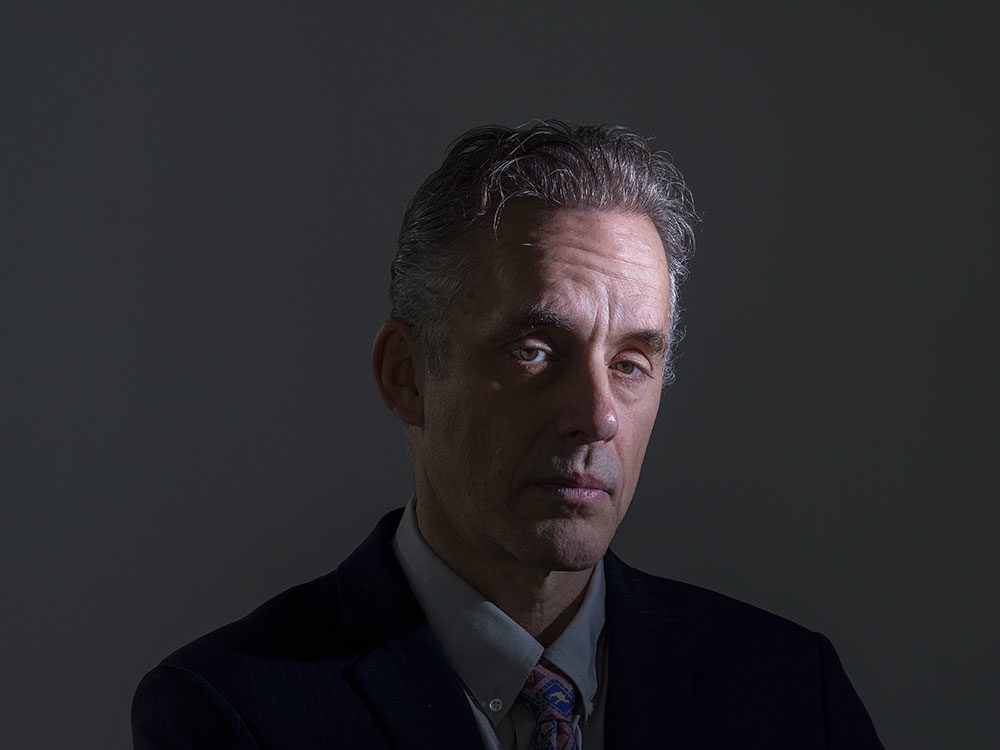
Peterson came to Queen's University on Monday and the organizers were kind enough to invite me. He spoke to hundreds in a packed hall, and the chaos came, too. The professor's appearances sometimes bring out violent protesters, and we were subject to hooligans pounding on the stained glass windows of Grant Hall, one of which was broken. When the police stopped the woman who broke it, they found in her bag a garrote, a favoured Mafia instrument for strangulation.
The chaos of the inchoate outside was a contrast with the rather cool and calm Peterson. He must be used to it by now. The protesters were embarrassingly inarticulate for university students, their chants generally consisting of "f..k white supremacy" or some other bad thing. My reportorial antennae did not detect any takers for white supremacy on hand.
Queen's Principal Daniel Woolf, who took a strong stand in favour of civil academic discourse in light of Peterson's visit, must have been mortified. Woolf is so attentive to the proper use of words that he recently tweeted a correction to someone who used "less" when she meant "fewer." One can imagine what he thinks of students whose oratorical range begins and ends with the other "f" word.
Of course I had heard of Peterson's travails at the U of T, but it was not until last week, while in London, that I realized how big he had become. The London Underground was plastered with posters promoting his new book, and a recent appearance on British television had some eight million views.
What is so compelling about his message? Exposing the foolishness of the foolish is always welcome, but does not account for his popularity. Neither does the insular world of campus politics alone. I have not yet read his book, and am only passingly familiar with his other public arguments, but I was struck - as a Catholic chaplain on campus - by something he said on Monday.
"Do you want life to be easy?" Peterson asked. "Don't you want it to be a struggle?"
That excellence in certain spheres of life requires struggle is widely accepted. Such advice in absolutely routine from coaches in sports, or instructors in music or drama. But for life as a whole? That it is somehow good that life is a struggle, because striving perfects our character? That is rather less commonly heard. In this regard Peterson is really a public heretic, dissenting vigorously from the dominant religious teacher of our times, Oprah Winfrey.
So although Peterson is not a religious believer in the conventional sense, and not a confessing Christian, the discussion on Monday was more than familiar to a chaplain who has worked with students for 15 years. I was not surprised to learn that young men are Peterson's most enthused followers.
On Monday I heard a new singer, but I know well the song.
"Man was created for greatness - for God himself; he was created to be filled by God," wrote Pope Benedict XVI in 2007. "But his heart is too small for the greatness to which it is destined. It must be stretched."
To stretch. To struggle. To strive for that which is beyond our grasp. It's not an exclusively theological insight. As the poet Robert Browning put it: "Ah, but a man's reach should exceed his grasp, or what's a heaven for?"

With my students I propose Benedict XVI, or my favourite quotation from St. John Paul II, addressed to young people in Poland: "You must demand much of yourselves, even if others demand nothing of you."
The university campus today usually makes fewer demands of students than they are encouraged to make of the university. Even if those demands are legitimate, demanding of others is not the path to a heroic life.
I thought not so much of Browning as Tennyson during parts of Peterson's talk. In Ulysses the old man insists that the heroic ideal has not been extinguished by age:
"We are not now that strength which in old days/ Moved earth and heaven; that which we are, we are,/ One equal temper of heroic hearts,/ Made weak by time and fate, but strong in will/ To strive, to seek, to find, and not to yield."An old man should still strive for the heroic heart. And the young should earnestly begin.





Ha!! Take a look around! (or at yourself)
It s the same for the monkeys. It s impossible to keep them from swinging from the trees.
Bliss is going to bed at peace (not drugged alcoholled or smoked) . Bliss comes naturally for having had the balls to respond with ability to our day s calling.
How complicated !!?!!